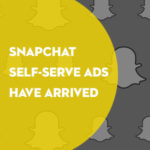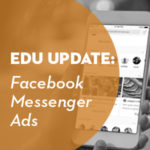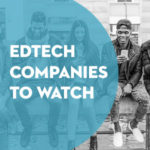posted by Mikayla Wilson on September 29, 2015 in Converge Blog
Isabel DiSciullo Answers Key Questions About Myers Briggs
This October at Converge 2015, our focus is to bring the best and brightest together to revolutionize higher education. In this series of blog posts, Content Marketing Intern, Mikayla Wilson, asks our speakers key questions. Read on to find out more about our passionate speakers and the importance of their topics.
Name: Isabel ‘Issa’ DiSciullo
Institution: Drexel University Kline School of Law
Session: Myers Briggs Academy
Date & Time: Pre-Conference | Tuesday, October 22 | 4:30-6:00PM
Summary: How well do you know yourself? Fly in a little early and join Isabel DiSciullo of Drexel Law for a very personal pre-conference session, included in your Converge 2015 admission.
Getting to know ourselves better and appreciating the differences in others is a valuable asset in today’s changing landscape. Explore how you can become a more effective advocate in advancing your career. This session will discuss personality type preferences using the Myers Briggs Type Indicator. Together, we will learn about our own preferences and how to enhance our relationships with others.
MW: Tell us more about yourself.
ID: I entered academia and admissions in the most traditional way – working for my alma mater right after graduation. What was meant to be a one-year temporary position turned into an 8-year stint, where I moved through the ranks in admissions.
Eventually, I found myself leading my own admissions team and quickly realized that managing and leading were two different things. As I pursued both a master’s and Ed.D in higher education leadership, I learned that empowering one’s team could only work if I really knew myself and my team members – our strengths and our challenges.
In my role at Drexel, I was given the opportunity to delve deeper into the Myers Briggs Type Indicator and become a certified administrator and evaluator. Five years later, I continue to use to the tool to develop my team members as well as our law students – we now incorporate the MBTI into our 1L curriculum.
Now that I’ve been in the industry for more than 20 years, it is clear that admissions and helping students achieve their educational dream is always going to be my first passion. But having the ability to grow and empower my team members and students through tools like the MBTI in the process is certainly a close second!
MW: What is new and next in Myers Briggs?
ID: When mother-daughter team, Katharine Briggs and Isabel Briggs-Myers, developed the MBTI, their goal was to expand on Carl Jung’s theories in a way that was more understandable and useful in our everyday lives. The Myers Briggs identifies four dichotomies describing how we experience the world and builds on Jung’s theory that in each of the dichotomies, one will always naturally rise as our dominant preference. The combination of each of those dominant preferences is our “type,” and there are 16 possible combinations; thus 16 Types.
Isabel Myers continued her mother’s work and research even after her mother passed away, and concluded that while the initial assessment tool (MBTI Step I) yielded descriptions on how each type differed from the other, it offered little explanation on how people of the same type may also differ. She began adding questions to the original tool to further explore this issue, and that has led to the MBTI Step II, which is an in-depth assessment of each type, as well as the facets associated with that type. Recently, the Myers & Briggs Foundation have expanded the assessments to create a tool specific for one-on-one counseling and guidance: MBTI Step III).
MW: Why are tools like the MBTI so important in higher ed?
ID: Tools such as the MBTI that allow us to gain knowledge and understanding of personality types can help in personal growth, achieving balance, understanding one’s self and creating possibilities in the world around us. When we understand our type, we can approach working and learning in a manner that best suits us and also helps us understand and be more tolerant of those who might have preferences different from ours.
In an academic setting, when teachers and students understand the differences in their teaching and learning styles, they are better able to communicate with each other and affect learning in a positive way. Understanding types in an academic setting helps us eliminate labels such as “disruptive” or “unreasonable,” especially in situations where the student and the teacher disagree. It allows both parties to recognize and validate the other’s approach and create tools to access learning rather than barriers.
MW: What challenges have you seen in higher ed in Myers Briggs?
ID: The biggest challenge I have seen and faced with regards to the MBTI in higher education is technology. In our digital world, assessments such at the MBTI can be found all over the web. Regrettably, these web assessments don’t usually come from the Myers & Briggs Foundation and they are rarely accompanied by accurate assessments and evaluations. As a result, people receive incorrect information about their type and what it actually means. And that can lead to skepticism about the tool, which is unfortunate since when interpreted correctly, the MBTI can really help in all aspects of personal and professional growth.
MW: Are there any resources you would recommend?
ID: The Myers & Briggs Foundation continues the work that Katharine and Isabel started many years ago. They are a great resource for information about the MBTI: http://www.myersbriggs.org/.
The book, Gifts Differing, by Isabel Myers and her son, Peter Myers, expands on Jung’s theories and the MBTI.
Mary and Isabel’s online library provides access to the Isabel Briggs Myers Memorial Library and can offer information about MBTI, psychological types and other related topics: http://www.capt.org/MILO/.
MW: What are you most excited about for Converge 2015?
ID: I am looking forward to hearing from so many great creative minds! I always leave the Converge conferences with so many new and exciting ideas. And, I can’t lie…I’m excited to experience DinnerLab. Oh, and I will sneak away to grab a po’boy from my favorite po’boy restaurant, Killer Po’Boy.
MW: Attend Converge 2015 to hear Issa and many other great speakers. We hope to see you there!







